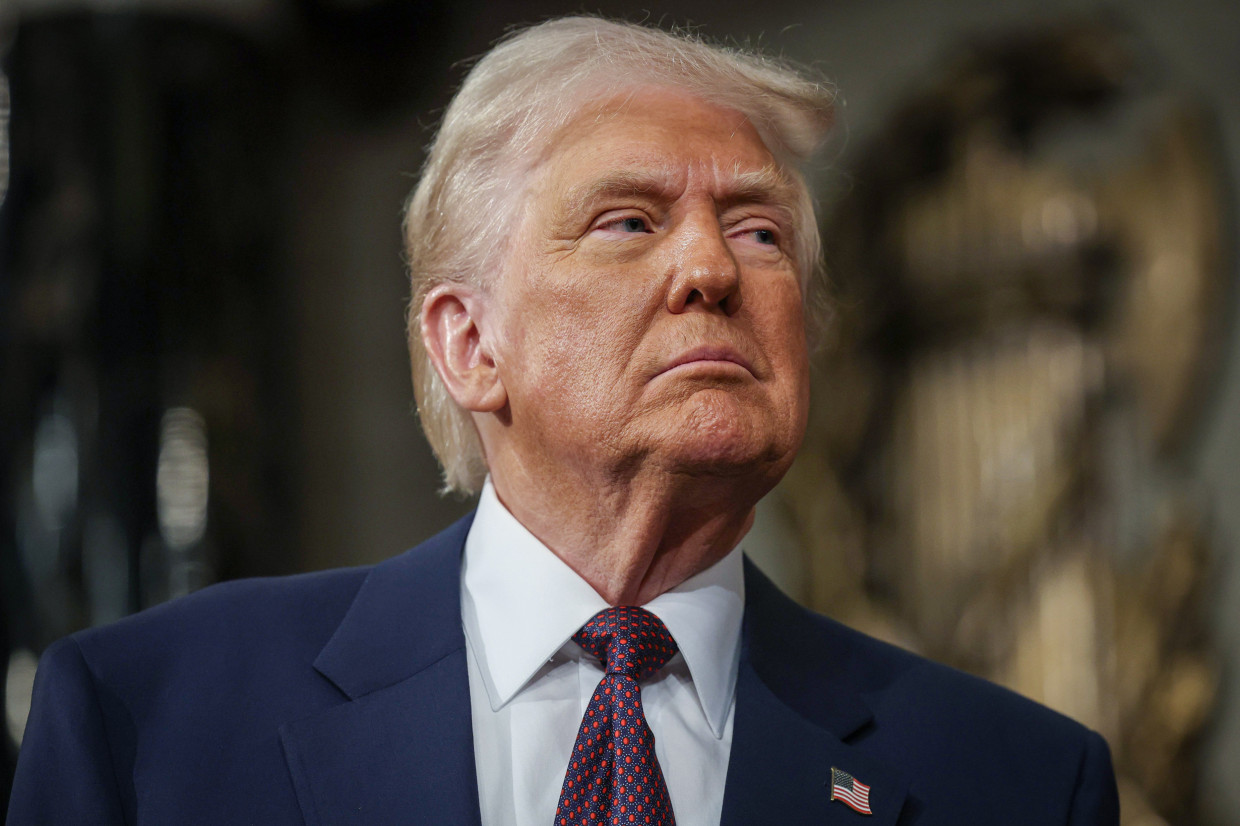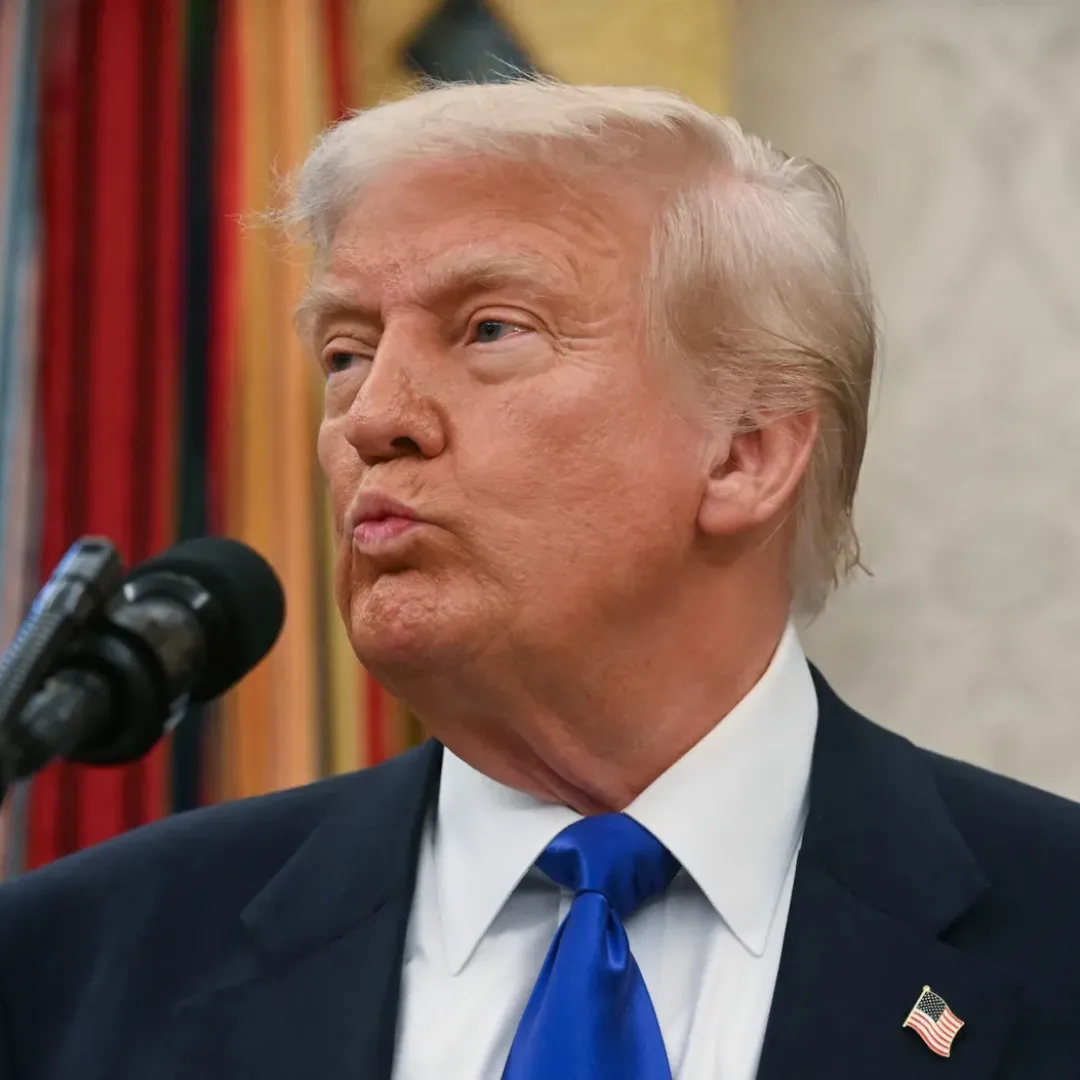
More than 50 House Democrats are demanding that the Trump administration immediately restore a federal program that helped lawful permanent residents in their efforts to become American citizens.
The Citizenship and Assimilation Grant Program, which had been operating since 2009, was quietly terminated by the administration in late March, sparking outrage among lawmakers, immigrant advocacy groups, and nonprofit organizations that relied on the program’s support to carry out their work.
In a detailed six-page letter addressed to the acting director of the U.S. Citizenship and Immigration Services, Kika Scott, the group of 54 Democratic representatives led by California Congressman Jimmy Gomez described the sudden cancellation of the program as both alarming and unjustified.
The letter was sent Thursday and outlined lawmakers’ growing concern that the decision undermines a long-standing bipartisan commitment to support immigrants on their path to naturalization.
"We demand immediate action to restore funding for the C and A Program and a prompt response to our questions regarding the rationale and legal basis for its termination," the lawmakers wrote. "This action marks a significant escalation since an abrupt funding freeze was announced just weeks ago on February 4, 2025."
Created during the Obama administration, the Citizenship and Assimilation Grant Program was designed to support nonprofit organizations in their mission to provide lawful permanent residents with the necessary tools to pursue American citizenship.
Through grants distributed by USCIS, nonprofits offered civics classes, English language instruction, naturalization test preparation, and personalized legal assistance with citizenship applications. For years, the program was seen as a practical and effective way to ease the often complex naturalization process, particularly for individuals facing language or financial barriers.
The Trump administration’s decision to abruptly end the program—without public hearings, congressional consultation, or direct justification to the organizations affected—has triggered widespread backlash. Many of the affected groups had already budgeted for their planned work using funds awarded through the program, only to be notified on March 27 that the program had been terminated altogether.

"The sudden and unilateral decision to terminate legally awarded grants funded by Congressional appropriation, without prior notice to Congress or affected grantees, raises serious concerns about due process, legal authority, and the Department’s commitment to advancing naturalization services for aspiring citizens," the lawmakers stated in the letter.
The legislators emphasized that this was not the first time they raised their concerns. In an earlier letter sent on March 7, they asked USCIS to reinstate the program’s funding and explained that the services provided by grant recipients actually save the agency significant time and resources.
They argued that helping applicants from the outset prevents errors and minimizes the need for follow-up actions like issuing requests for evidence or reprocessing applications. However, the lawmakers said they received no reply to that earlier request.
Now, with time running out for some organizations facing financial uncertainty, the representatives have renewed their call for answers. They want USCIS to clarify the exact reasoning behind the decision to terminate the program and to identify the individuals responsible for making that determination.
"What evidence supports the conclusion that the Citizenship and Assimilation Grant Program no longer serves programmatic goals or DHS priorities?" they asked. "Who authorized this determination?"
The lawmakers further criticized the termination as being carried out in a manner that, in their view, lacked transparency, accountability, and respect for the legislative branch’s role in overseeing executive actions.
"The abrupt termination of a longstanding and effective grant program—carried out without explanation or consultation—raises serious concerns about governance, oversight, and public trust," they wrote.
The group of signatories includes prominent progressive and centrist Democrats from across the country. In addition to Representative Gomez, the letter was signed by figures such as Delegate Eleanor Holmes Norton of Washington, D.C., Representatives Judy Chu and Zoe Lofgren of California, Veronica Escobar of Texas, Pramila Jayapal of Washington, Alexandria Ocasio-Cortez of New York, and many others from over 20 states.
The broad geographic distribution of the signatories signals that the issue resonates far beyond traditional immigration strongholds.
Representative Gomez, who has consistently advocated for immigrant rights, said in a statement released after the letter that the administration’s move reflects a pattern of hostility toward immigrants, even those pursuing legal and permanent residency in the U.S.
"This is not just about funding. It’s about values," Gomez said. "When we pull support from people who are following the rules, working hard, and trying to become full participants in our democracy, we are sending a message that they’re not truly welcome here. That is unacceptable."
Among those affected by the cancellation are dozens of community-based nonprofits that have long partnered with USCIS to help immigrants transition into citizens.
These organizations, many of which operate on tight budgets and depend on public funding, now face the prospect of canceling classes, laying off staff, and leaving thousands of clients without the guidance they need to navigate the often complicated citizenship process.
One such organization, the Community Welcome Center in Houston, had planned a year-long civics instruction program for recent refugees and permanent residents from Central America, Southeast Asia, and Africa. Staff members said they were blindsided by the news of the cancellation and have been scrambling to find alternative funding sources.
"We had nearly 200 students signed up and ready to begin a ten-week class series in April," said Executive Director Nora Aguilar. "Now we’re having to tell these families that the classes might be canceled. These are people who want to be part of the country officially. Why would we discourage that?"
Several immigration lawyers and policy analysts echoed the concern, emphasizing that naturalization is not just a personal milestone for immigrants but a national investment in democratic stability and civic engagement.
"Naturalization promotes integration, increases civic participation, and strengthens our democracy," said Raul Mendoza, a legal policy researcher with the Institute for Inclusive America. "Programs like this one have been shown to dramatically increase the success rates of applicants and reduce USCIS processing backlogs. Cutting this program is not only harmful but inefficient."

Mendoza also pointed out that the program’s budget, which typically hovered around $10 million annually, was a tiny fraction of DHS’s overall spending. "We’re talking about less than a drop in the bucket," he said. "It’s difficult to see this as a cost-saving measure. It looks much more like a political decision."
The termination also raises legal questions. Lawmakers noted that grants under the program were awarded through a competitive and legally binding process, funded by Congressional appropriation. Cutting off those funds without consultation may have breached contractual obligations, opening the door to potential litigation by affected organizations.
While USCIS has so far declined to publicly comment on the termination, sources within the Department of Homeland Security suggested that the move was part of a broader reevaluation of agency priorities under the current administration. However, critics argue that such a reevaluation, if it is indeed taking place, should be carried out transparently and with input from Congress.
"This administration has not provided even a basic explanation of how this decision aligns with DHS’s stated goals," said Representative Jayapal, who chairs the Congressional Progressive Caucus. "If anything, ending the program runs counter to the idea of an orderly and effective immigration system. Helping lawful residents become citizens is not a radical concept. It’s a fundamental part of our national identity."
As calls for the program’s reinstatement grow louder, affected communities are also mobilizing. In cities across the country, immigrant rights groups are organizing petitions, rallies, and meetings with local representatives to demand that the program be brought back.
In Los Angeles, where more than one-third of residents are foreign-born, hundreds gathered outside a federal building last weekend to protest the program’s cancellation. Many of the attendees had either benefited from the program or had family members who had gone through the citizenship process with the help of a USCIS-funded nonprofit.

"I became a citizen three years ago thanks to the help I got through this grant program," said Omar Reyes, a father of two who immigrated from Mexico as a teenager. "Without it, I might still be waiting. It made all the difference."
For now, however, the program remains inactive, and the future of the grants is uncertain. Lawmakers say they will continue to press USCIS for answers and have not ruled out legislative action to restore the program through appropriations or oversight mechanisms.
"This is about our nation’s promise," said Representative Sylvia Garcia of Texas. "We tell people that if they follow the rules, contribute to society, and seek the American dream, they will be welcomed. We need to keep that promise."
With immigrant communities across the country anxiously awaiting the outcome, the stakes are high. Whether USCIS and the Trump administration will reverse course remains to be seen, but the political and human cost of the cancellation is already unfolding. For thousands of aspiring citizens, the journey toward full inclusion in American life just became significantly harder.




